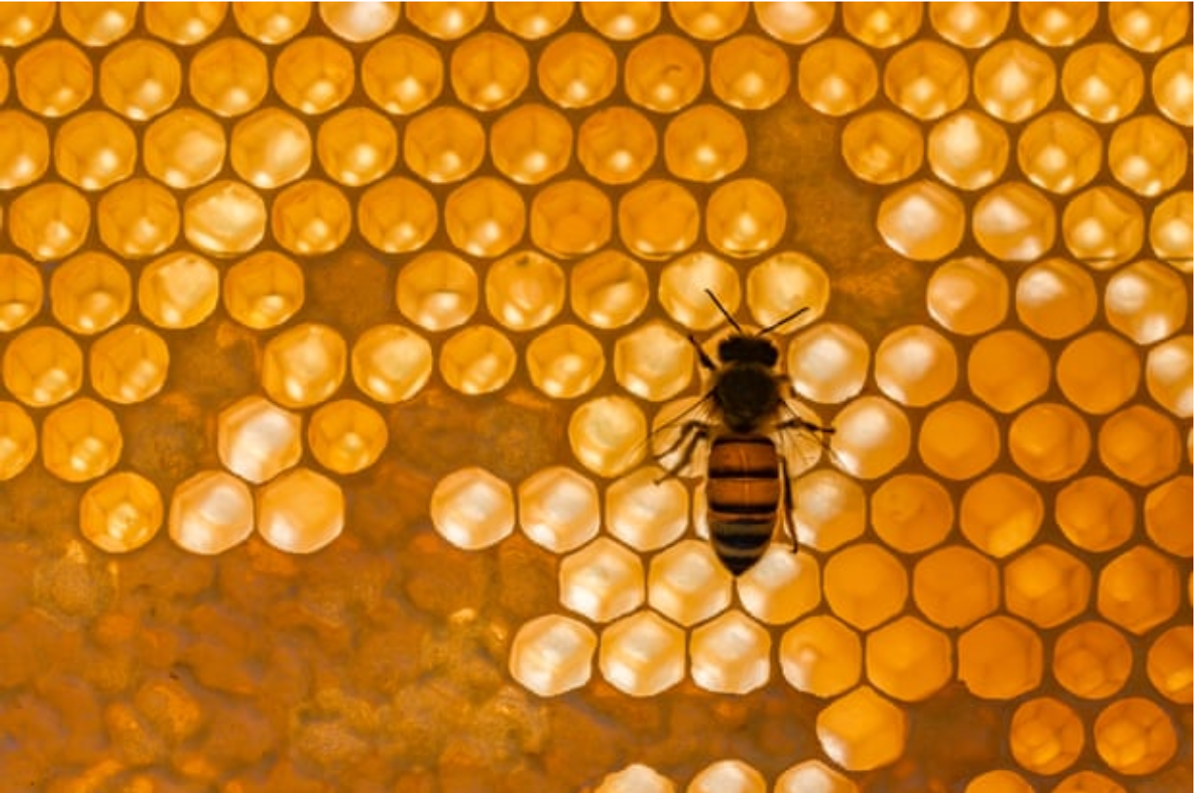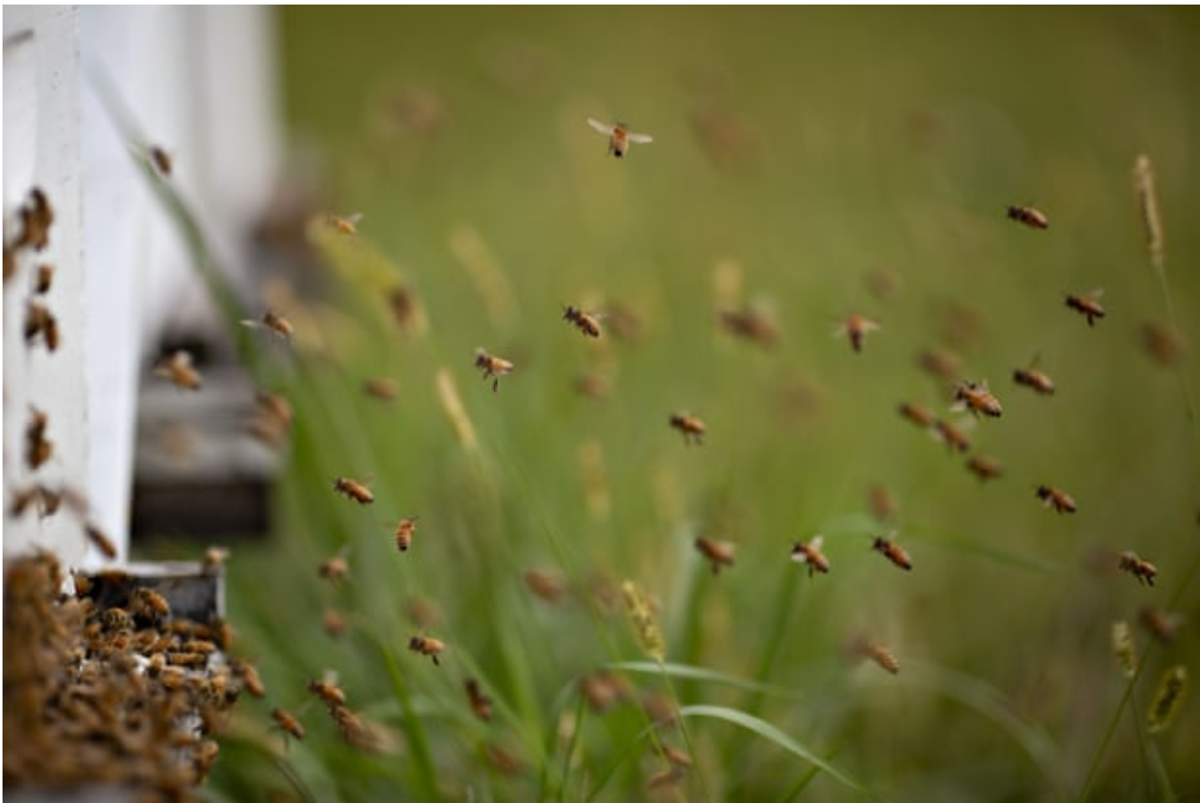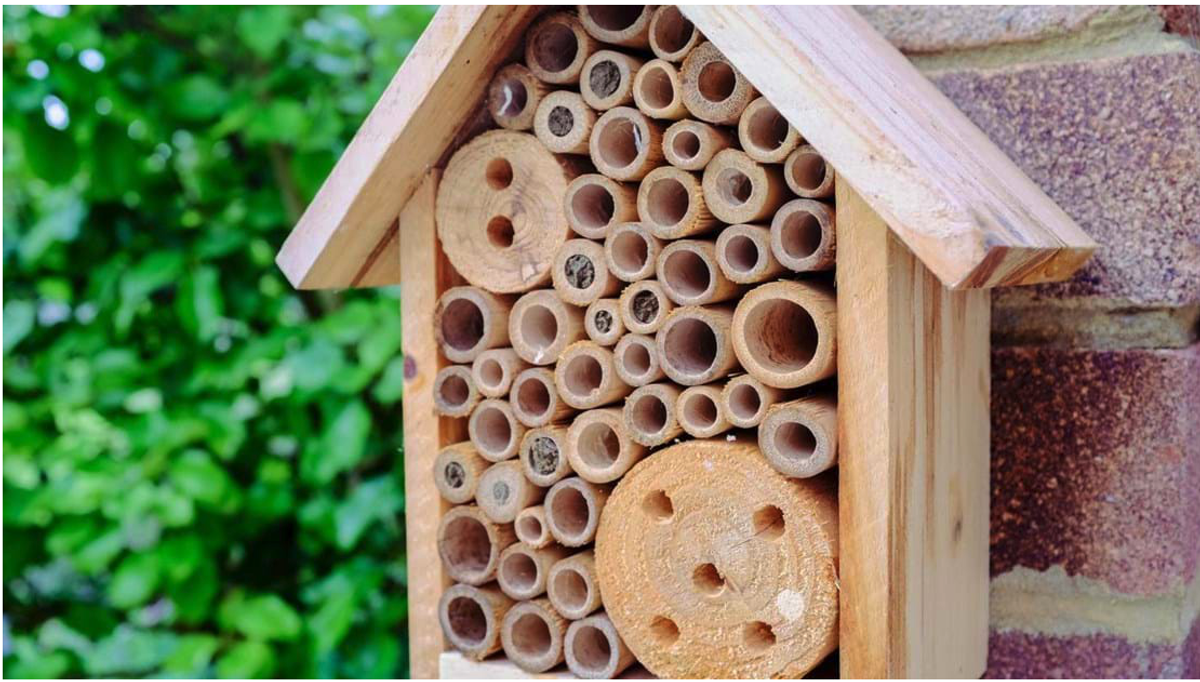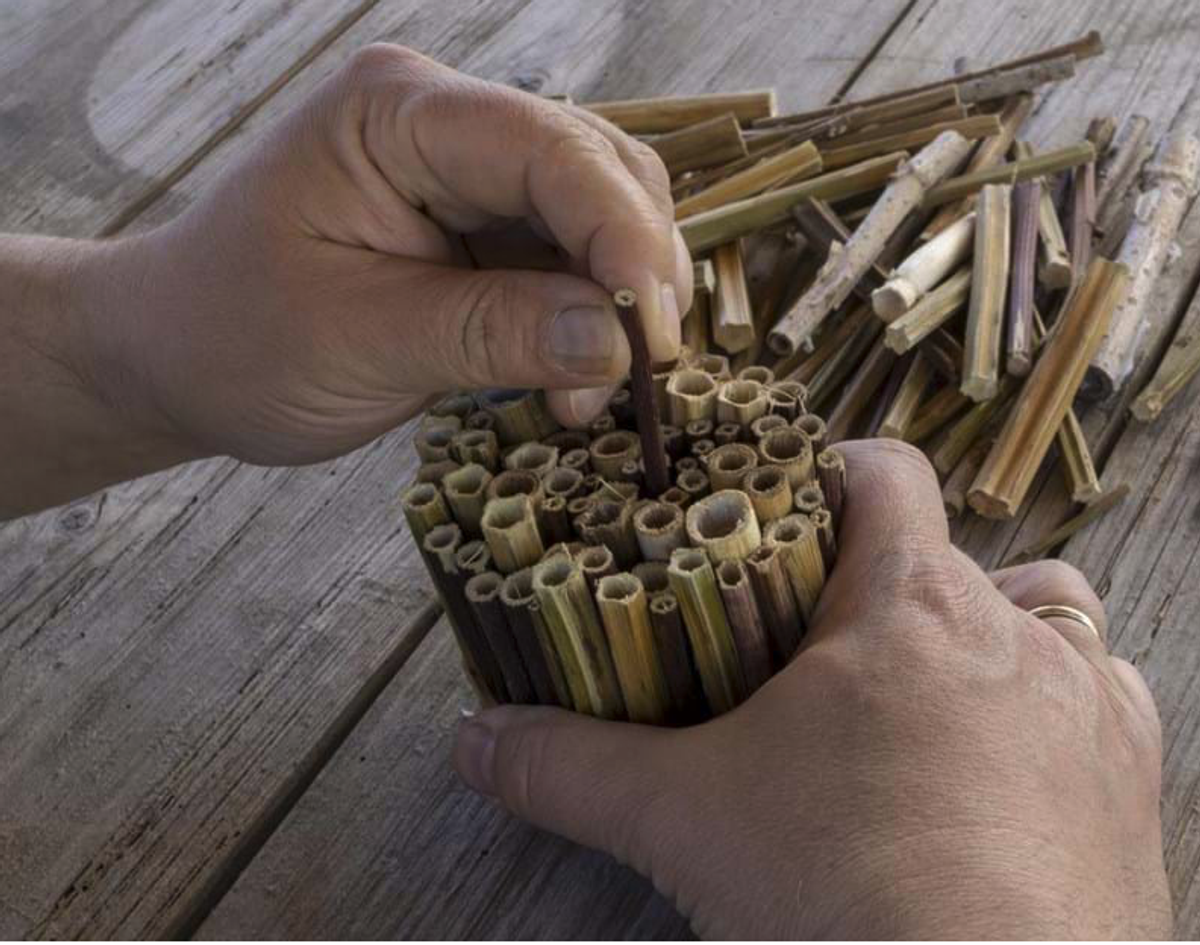The Green Page:

Why are Bees Important?
Bees are in a class by themselves as pollinators, a role that requires a sophisticated mind, say some experts.
Save the bees is a common plea. You’ve likely seen it plastered on t-shirts, on mugs, and on images online. But why are bees so important?
The simplest answer is that bees pollinate food crops. Pollination occurs when insects — like bees and other pollinators — travel from one plant to the next, fertilizing the plant. Bees have little hairs all over their body that attract pollen. When the pollen from a flower sticks to a bee, it travels with the bee to its next destination. When a bee lands on the next plant or flower, the pollen is distributed, resulting in cross-pollination. This process is what later yields fruits, vegetables, and seeds.
Bees are one of the world’s most important pollinators for food crops — each day, we rely on bees and other pollinators. In fact, out of every three bites we consume relies on pollination. Yet bee populations continue to decline due to the rampant use of pesticides and other environmental factors — like climate change. We cannot stress how important bees are — not only to people but to the overall environment.
Reasons Why Bees Are Important
A vast majority of flowering plants rely on pollinators to reproduce. Fruits and vegetables all rely on pollinators transporting pollen from one flower to the next. But the value of bees goes beyond just supplying countless fruits and vegetables. Bees are also responsible for nuts, coffee, and even spices. Here are the top 5 reasons why bees are important, they:
- Help produce 1/3 of our food supply
- Help provide ½ of the world’s fibres, oils, and other raw materials
- Help create many medicines
- Provide food for wildlife
- Help prevent soil erosion
Why Are Bees Important To Humans
Could you imagine walking into your grocery store and not seeing the shelves lined with food? There would be few fresh fruits or vegetables. There would be no honey, almonds, coffee, or chocolate products! Even milk and beef would be in short supply. That’s right — pollinators like bees are responsible for plants that feed cattle — like alfalfa. Pollinators are responsible for an extensive amount of the foods that we consume. Pollinators (including moths, flies, beetles, birds, bats and more) are also part of maintaining the lungs of our planet. Pollinators help the growth of many trees as well as other plants! They are truly a keystone species – a vital part of many ecosystems.
So taking a step back to look at why bees are important to humans, the answer is very clear. Bees are a cornerstone of our food system, and along with other pollinators, they help support the plants that provide the air we breathe.
Why Are Bees Important To The Environment
Nearly 90% of flowering plant species on the planet require pollinators to aid in reproduction. This not only provides a food system for wildlife but it also creates shelter for animals.
Why Are Honey Bees Important
There are over 20,000 bee species across the globe, with 4,000 being native to the U.S. One of the most notable bees is the honey bee.
The honeybee is responsible for nearly a third of crop pollination. But these hardworking insects produce more than that! They have six hive products — pollen, honey, beeswax, royal jelly, propolis, and venom. These are all collected and used for nutritional and medical purposes by humans.
What Will Happen If Bees Keep Dying?
There is no way to overstate the importance of bees.
The wind does play a role in pollination, so we cannot overlook the fact that we would have some food to eat — just nothing that would be tasty to eat day in and day out. The wind is responsible for the pollination of corn and wheat. But the majority of our nutritious foods are bee-assisted. No almonds. No apples. No cherries. The list goes on and on. Humans would lose a healthy, vibrant diet.
Then what? It’s possible that advancements in technology would find ways to pollinate by “hand” — or by drone — we really don’t know what the future holds. But hand-pollinating is expensive. And those costs would be absorbed by consumers! If you could get your hands on fresh fruits and vegetables — it would cost you a fortune.
Bee declines warn us that we are on a toxic track. The same pesticides that are killing bees threaten many other insects, which are the basis of our ecosystems. And these toxic chemicals contaminate the air and water. They even linger in the soil for months or years, harming the vital soil communities we need to grow our food. If we step up to save the bees, it means that we’ll be saving so many other creatures, too. But we know that if we keep losing our bees, we’ll be living in a world with troubles greater than paying $50 for an orange.
A Carniolan honey bee crawling on a honeycomb. Photograph: Frank Bienewald/LightRocket/Getty Images
Buckfast honeybees fly near a beehive in Marengo, Illinois. Photograph: Bloomberg/Getty Images
If you made it this far - well done! This article gave me an even deeper respect for nature and for bees in particular. Without bees, we have no kai, no hope of life.
So what can we do to help?
Plant bee-friendly flowers:
Planting a diverse array of flowers that are rich in nectar and pollen can provide food for bees and other pollinators. Some examples include lavender, sunflowers, and wildflowers.
Avoid pesticides:
Pesticides can be harmful to bees and other pollinators. If you must use pesticides, use them sparingly and carefully according to the instructions.
Provide nesting sites:
Some bee species nest in the ground, while others nest in hollow logs, stems, or other small cavities. You can provide nesting sites by leaving some areas of your garden untidy or by installing bee houses.
Support local beekeepers:
Buying honey and other products from local beekeepers can help support their efforts to maintain healthy bee populations.
Advocate for bee-friendly policies:
You can contact your local representatives and urge them to support policies that protect pollinators, such as reducing pesticide use and preserving habitats.
And if you really want to be both caring and creative - build a Bee Hotel:
Why build a bee hotel?
Building a bee hotel is a great way to help solitary bees. Unlike honeybees and bumblebees, solitary bees live and build their nests alone, usually in tunnels, hollow stems and beetle holes. If you create a ready-made place for them to lay their eggs, it’s highly likely they will come and take up residence there. So, why not lend bees a helping hand and build them a place to stay to encourage them to visit your garden?
What you'll need
- A plank of untreated wood, at least 10cm wide
- A saw, drill and nails
- Reeds, bamboo canes and hollow stems in a range of diameters
- A mirror fixing/something to hang the hotel up with
How to build a bee hotel
- Cut your plank of wood into five pieces. Three pieces should be the same size – this will form the rectangle frame that will support the roof. Two of these pieces will need to be cut away at a right angle to create a sloping edge to house the roof. For the remaining two pieces, one should be slightly longer than the other as they will form the roof on top at a 90-degree angle. The reeds, bamboo canes and hollow stems will sit inside the frame.
- Drill some guide holes for the screws to fit into and assemble the frame.
- Next, cut your stems, reeds and canes to fit the frame's depth. You can use a saw or secateurs to do this.
- Load the frame with your canes, reeds and stems, packing them in as tightly as possible. If you have extra space, you can always add circular bits of wood with holes drilled in to diversify your bee habitat.
- Attach the mirror fixing to the back of the frame. You’ll want to position your bee hotel facing north, in a sunny spot sheltered away from rain.
Pack your bee hotel full of reeds, bamboo canes and hollow stems of different diameters.
How to attract bees to your bee hotel
Aside from placing your bee hotel facing north, the best way to attract bees to your new B&B is by planting many bee-friendly wildflowers in your garden.
How to look after your bee hotel
Keeping your bee hotel clean is important to prevent the build-up of parasites, debris and mould. With no cleaning, these can affect the health of the bees in your garden and even stop bee larvae from surviving the winter in your bee hotel.
Take your bee hotel down in March to do a little maintenance. Here are some tips for taking care of it.
- Brush off any cobwebs or debris.
- Remove the nesting tubes and store them in a shed or other dry, cool area outdoors (it will be too warm in your house).
- Clean out the bee hotel housing with boiling water and a stiff brush.
- Let the clean housing dry completely before adding new nesting tubes and storing the hotel in the same place as the old tubes.
- Put the bee hotel back in spring, late September or early October.
- Pop the old tubes back outside too, next to your bee hotel so that any emerging bees can fly into the new, clean material.





